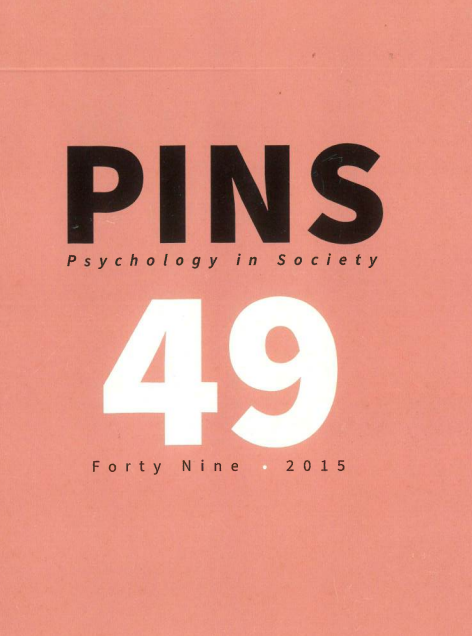Crime, fear and continuous traumatic stress in South Africa: What place social cohesion?
DOI:
https://doi.org/10.17159/2309-8708/2015/n49a7Keywords:
social cohesion, crime, fear of crime, continuous traumatic stress, collective efficacy, South AfricaAbstract
International literature on crime and violence suggests that social cohesion may play a key role in facilitating prevention at community level. It is argued that in South Africa high levels of crime entailing interpersonal violation not only reflect ruptures in the social fabric but also contribute to social disorganization. In exploring the traumatic impact of exposure to fairly pervasive criminality via the constructs of Fear of Crime (FoC) and Continuous Traumatic Stress the article explores some of the linkages between responses to crime and the facilitation or erosion of potentialities for social cohesion. It is argued that the common responses of fearfulness, suspicion and social withdrawal (as well as defensive aggression in some
instances) are counter-productive to attempts to build pro-social organization. Consequently a rather intractable circular relationship may ensue in which the conditions that enable criminality are not challenged because indirect and direct exposure to violation, alongside perceived and actual deficits in formal state interventions, have eroded the motivation and capacity of citizens to tackle such conditions, leaving spaces open for violation to continue unchecked, Some of the complexities of thinking about forms of social cohesion as a route to challenge crime and its impact in South Africa are elaborated. It is emphasized that collective efficacy appears to be the aspect of social cohesion that is most pivotal in addressing this feature of society.
Downloads
Downloads
Published
How to Cite
Issue
Section
License
This journal is an open access journal, and the authors' and journal should be properly acknowledged, when works are cited.
Authors may use the publishers version for teaching purposes, in books, theses, dissertations, conferences and conference papers.
A copy of the authors’ publishers version may also be hosted on the following websites:
- Non-commercial personal homepage or blog.
- Institutional webpage.
- Authors Institutional Repository.
The following notice should accompany such a posting on the website: “This is an electronic version of an article published in PINS, Volume XXX, number XXX, pages XXX–XXX”, DOI. Authors should also supply a hyperlink to the original paper or indicate where the original paper (http://www.journals.ac.za/index.php/pins) may be found.
Authors publishers version, affiliated with the Stellenbosch University will be automatically deposited in the University’s’ Institutional Repository SUNScholar.
Articles as a whole, may not be re-published with another journal.
The copyright of the article(s) lies with the author(s).
The copyright of the journal lies with PINS-psychology in Society.
The following license applies:
Attribution CC BY-NC-ND 4.0 - https://creativecommons.org/licenses/by-nc-nd/4.0/

